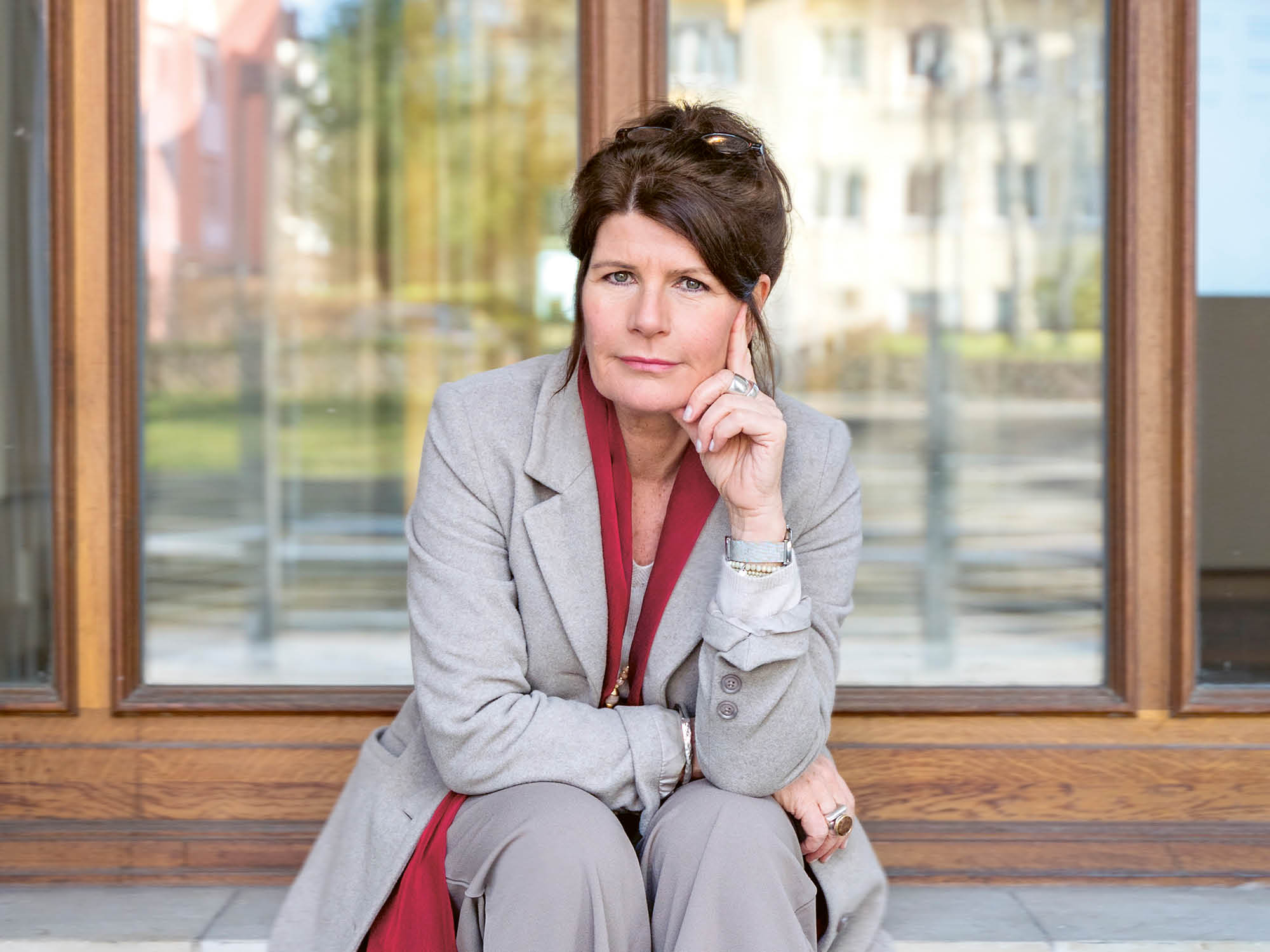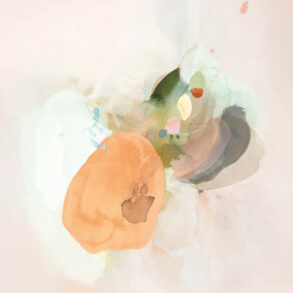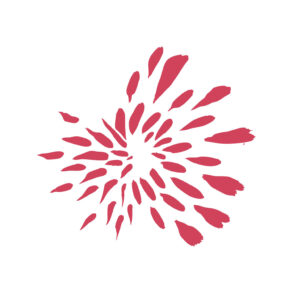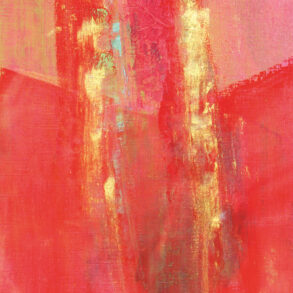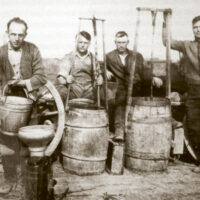Why do we perceive our societies today as divided, and how can we come together again? Claudine Nierth (eurythmist, couple’s counselor, and now social artist) has been working for more direct democracy in Germany for decades. She currently is the speaker for the Executive Board of the Mehr Demokratie [More Democracy] association. She believes the crisis is a call for change—both in the political “operating system” and in ourselves. Interview by Franka Henn.
Franka Henn: Nowadays, a lot is being written about the division of society. Your second book, co-authored by Roman Huber, is called Die zerrissene Gesellschaft [The torn society]. When did the disruption begin, and how do we measure whether a society is “torn apart”?
Claudine Nierth: There have always been different points of view as well as polarized opinions and attitudes. But the question is: Why, all of a sudden, do we experience them so divisively and as such a threat? Why do we suddenly experience a division in ourselves?
I can’t say precisely when it started, but it became unmistakably clear during the coronavirus time. In the first few weeks, everyone was uncertain but open. Then, with the first realizations of what was happening and the measures that followed, various interpretations of the actual danger emerged. When one interpretation prevailed, the subsequent measures dominated all other interpretations—this was the problem. Suddenly, there was no room for differences in opinion, diversity, or plurality. That led to massive disputes. I believe that conflict always arises when people feel dominated by others—when people feel neglected, ignored, or simply not heard. When it comes to their integrity and their own lives, things get tense.
You’re working with Mehr Demokratie as an artist and designer of social spaces, in conversation with both citizens and politicians. What have you observed in this experience?
People’s mistrust of state institutions and politics has grown tremendously. The rifts are widening. On the flip side, politicians are also becoming more and more frustrated because they are not succeeding in solving people’s problems. Overall, people have become more sensitive—all of us. We react more strongly to irritations and disturbances and are less resilient. Everyone’s fuse seems to be shorter than it was ten years ago. As a result, we tend to have much stronger reactions, even violent ones. More and more people feel they no longer belong. They feel marginalized, disadvantaged, and overlooked, and we can see this across all age groups. We witness people withdrawing, no longer communicating, and giving up. And then there are those who become unruly or radicalized.
Division is a form of avoidance. When we can’t cope with something, we do not want to feel it, we distance ourselves. We inwardly keep our distance. If another person says things we do not like, we inwardly and outwardly avoid them. Ultimately, we no longer want to share democracy with them. Division is, above all, the loss of relationship. We experience this in our partnerships, in our families, in friend groups, at work, or even societally. Today, it’s easier to separate than to stay together. A hundred years ago, it was certainly the other way around, right?
Definitely. Does it appear to you that democracies themselves are in danger today, and if so, what is threatening them?
I think that the ruling political establishment is under more of a threat than democracy itself. People are not dissatisfied with democracy but rather with politics. For seventy years, we have had a system of government, an “operating system,” that has not kept pace with the evolution of society. We need to update this operating system for it to meet our expectations. For example, we could further democratize democracy, involve people more, and involve them in big decisions. We need to take on more responsibility as individuals instead of leaving it to the few. Why didn’t the state make us collaborators when dealing with the pandemic? Every school, every business, and every event venue could have developed its own protection strategies and invited everyone to help. Instead, everyone just expected the state to deal with all the problems. This created an even deeper rift between politicians and citizens.
In your book, you call attention to the emotional and psychological baggage that individuals and groups bring to the community. How are people’s inner and outer worlds connected here?
We all have unprocessed emotional experiences, some rather small, some quite large, that we have not yet fully confronted with our consciousness—instead, they split off or become frozen. But these experiences continue to intrude into our lives until we process them. Until then, they keep resurfacing; they weigh us down. We can recognize them by their repetitive nature. For instance, we feel triggered, and then we say the same sentences that we always say in these situations. We experience the triggering situations as more threatening than is appropriate, given the circumstances. Psychology compares trauma to a ball that we constantly try to push underwater to avoid feeling it. The more stressed and sensitive we are in the moment, the more it comes to the surface.
The Covid pandemic and Russia’s attack on Ukraine have had a major societal impact on us. Covid, for example, activated four prevailing fears: fear of illness and death, fear of government overreach, fear of loss of livelihood, and fear of endangering someone through infection. Depending on which fear someone had at the time, they would advocate a different political demand in order to satiate their fear. Those who were afraid of illness and death pursued the zero Covid strategy; those who were afraid of government overreach demanded the abolition of all restrictions; those who were afraid of infecting their relatives avoided them or locked themselves up; those who were afraid of losing their livelihood demanded the lift of the lockdown, and so on. This pattern also ran through the entire political spectrum. This is the reason why different federal states took different measures. But, there was no consciousness of the underlying motives and personal fears. Very few people were not triggered and were able to remain calm and level-headed.
When we look at the war in Ukraine or between Israel and the Palestinian groups today, it is the unprocessed experiences from the past that have been repeating themselves for centuries that are fueling the current conflicts. Everyone feels they have the right to destroy the other to defend themselves. These patterns can repeat everywhere in the world for centuries—without resolution. Recent trauma research speaks of a collective trauma that is inscribed in the memory of a nation and its culture. Every country carries a different past with it, which is reactivated again and again with certain stimuli. We can also call it the destiny or karma of a country.
Today, we need to become conscious of these mechanisms to break out feedback loops. We need to develop new cultural competencies to become more societally and politically resilient and to be able to face crises without losing our inner solidarity.
What do you mean by the paradigm: “Thinking driven by emotion is needed in politics”? What would that mean for politicians?
Every thought is based on a feeling. However, we are usually not conscious of it. Politics always claims to be rational and tends to overlook the feelings behind the actions or intentions, which actually have considerable influence on decisions. Can we imagine a process where we first become conscious of our feelings and our needs and only then turn to legislation? We have to learn to feel how our thinking affects the world. Then, we can also get away from ideologies. How often are the wrong decisions made out of hurt, fear, or anger?
Inner work is essential, but it can’t be prescribed. In your work for democracy, how do you approach people who refuse or are unable to practice self-development?
First, we need to become conscious of the fact that these shadowy emotions interfere with our actions everywhere in our lives. Then, we need to learn to manage them with care and sensitivity. Finally, we need to develop skills capable of dispersing the shadows and digesting the unprocessed experiences. We need to have a kind of “inner work of society,” a societal space that is turned inward, where we can naturally regulate and stabilize ourselves as a society. Not everyone has to do inner work, but those who can and want to have a responsibility for continuing to work on it. Each of us is a supporting pillar of our society. The way I am shapes my immediate environment. The steadier I am on the inside, the more my environment benefits from it. And the more responsibility one has towards the public, the more stable and more reflective one has to be in dealing with one’s own darker sides.
So, for yourself, where do you see that you could do more inner work to encourage more democracy?
Just because we live in a democracy doesn’t make us democrats. I’ve been trying for thirty years to become a little more democratic every day. Each day, I become a little more understanding of other positions. I try to hold the polarities within me to experience balance. For me, maintaining an inner balance is a very important skill for democrats. If I want a democracy of sympathy, then I have to allow this sympathy, first and foremost, within myself. For me, democracy does not mean being with those who are like me but also seeking the uncomfortable.
I think part of the divide in society is not just worries about the future or trauma but also that we feel overwhelmed. Stress or feeling overwhelmed has been shown to make us less sympathetic and more aggressive. How does one deal with feeling overwhelmed?
Why are we overwhelmed? Being overwhelmed originates in the same place as trauma. We can’t cope and instead become aggressive and unsympathetic. Behind every aggression, there is usually a fear. When we become aggressive, we want to protect something that we believe is threatened. It is usually a need that we feel is under threat.
It is these moments of feeling overwhelmed that show us that we need a space in our environment where we can work through them. In a meeting between colleagues or in government, it helps when you have a few people who have an emotional intelligence of stimulus-response patterns or are trauma-informed so that they can immediately recognize when someone is overwhelmed or triggered. When that is the case, the group will more likely be able to stabilize the situation. It is important that each person knows their own needs and how long their fuse is. One person’s fuse is longer, another’s shorter; the length is not necessarily good or bad at this point. We just want to become aware of it.
“Democracy of sympathy” sounds beautiful and visionary. Is it reasonable to strive for that even in times of crises? Is that still your goal, when you look at the state election results in Thuringia, Saxony, and Brandenburg,1 or do you now see more urgent milestones?
When the house is on fire, we need to get the source of the fire under control. The house is burning because our democracies are showing that they have major deficits, and people feel ignored. The established parties are currently struggling because they are not showing sympathy for people and their problems. Democracy really means establishing relationships with human beings, their concerns, their problems, and their solutions. Today, this relationship is either not there or is dysfunctional. So, we wish for new politicians, new parties, and so on. But, when it is their turn, we are again disappointed because they are all in the same boat, which continues to work by the same old operating system. Eventually, people start yearning for a strong hand to regulate everything. And that is a trap!
But, when we empower people to solve their own problems and give them the feeling that they are part of the solution rather than part of the problem, we will see a huge commitment to solving problems. People want to get involved.
In view of the debates on migration, the pandemic, and war, how can we find our way back to the discussion table and create a new level playing field?
We are currently receiving a lot of support and funding to go into communities where people are no longer communicating and turned away from each other. At Mehr Demokratie, we have developed a new format for dialog called “Speak & Listen.” In these dialogs, we invite a cross-section or all of the residents of a community into their main town hall. People get into small groups of four to share their experiences. Each person has an equal amount of speaking time. One person speaks for four minutes while the others just listen, without interrupting or commenting, only observing what they experience while they listen. We repeat this three times, always with the same question, for example, “How do I feel about the increase in migration?” When we ask questions like this, and people listen to each other, it is no longer about knowing better and being right but rather about understanding what other people are experiencing.
We are having a lot of success with Speak & Listen, and it is becoming quite popular. We are invited by citizens’ initiatives, mayors, and sports clubs. We also offer Speak & Listen online via our website. We are currently training hundreds of moderators who want to develop and pass on the work. We want to spread this format and strengthen democratic culture in the coming years. This is exactly what people long for. Here, they are able to once again have encounters with other individuals that transcend differences of opinion. Sympathy is being followed by listening, and then human connection. At some point, there will also be room for connections of opinions.
It is certainly crucial that every beginning requires a willingness to engage in conversation, a sympathy with the other human being, and a respect for them beyond any differences of opinion. That generates a shared warmth. Are citizens’ assemblies that you advocate for a cure for the inner division in society?
Absolutely. People are glad to be selected by lot and be invited to decide difficult political issues and make recommendations. Out of the groups of 160 people drawn by lot from the full spectrum of society, we have yet to see anyone being selective or excluding someone else. Everyone (!) immediately gets to work and gets involved in trying to work out the best result that everyone can go along with. The voting preferences of the individual participants play no role at all, and no one’s privacy is violated. On the contrary, people treat each other very respectfully when they experience that others take them seriously and care about what they say. Time and time again, we experience very touching moments between people. Even the politicians who come to visit are always impressed by how constructive and helpful the results of the citizens’ assemblies are. Now, we just need to implement these forms of dialog throughout Germany at all levels. And last but not least, in a new television format beyond the usual talk shows.
Together with Mehr Demokratie, we have developed a prototype of a Citizens’ Assembly for the Bundestag [German Parliament], and it’s now being used everywhere. The next step is to establish it and enshrine it in law.
I would also like to experiment and realize a prototype with the members of parliament, where an external moderator guides all MPs [delegates] through a legislative process as a group (beyond party affiliation and factionalism) so that all MPs, regardless of their party, can contribute their full knowledge. The expertise of people in parliaments is used far too much for competition rather than for collaboration and cooperation.
What experience has changed you the most since you started campaigning for direct democracy?
When I went to Wolfgang Schäuble [1942–2023], our President of the Bundestag at the time, in 2018 and suggested the idea of citizens’ assemblies based on the Irish model, he replied: “Ms. Nierth, try it out; it cannot do any harm, at best, it will do something; you have my support!” That was a turning point for me. Before that, I thought: “Forget it, there is no point—they will never change up there!” That was the beginning of a wonderful collaboration. Unfortunately, Schäuble passed away, and his support and persuasiveness for citizens’ assemblies are no longer there.
How do we move from a disengaged society in which the democratic will is crumbling to a competent, diverse, and agile “democracy of sympathy”?
By involving people in the essential issues—in the cities and municipalities, at the state and federal levels. Our experience shows, again and again, that when people are asked, they do not turn away. They get involved—constructively. No one wants to stand on the sidelines and just watch and criticize. Everyone wants to be part of the game and help to win.

Our print edition included pictures by Miriam Wahl from her work “Nomadic Fragments” (gouache and oil on cardboard, canvas, wood, and found objects; various formats, 2024).
Miriam Wahl lives and works in Marburg and Frankfurt am Main. More: www.miriam-wahl.de
Photos: Cover of issue no. 40 and view of the exhibition at Kunsthalle Kleinschönach.
Further reading:
Claudine Nierth with Katharina Höftmann Ciobotaru, Die Demokratie braucht uns! Für eine Kultur des Miteinanders [Democracy needs us! For a culture of togetherness] (Munich: Goldmann, 2021).
Claudine Nierth with Roman Huber, Die zerrissene Gesellschaft: So überwinden wir gesellschaftliche Spaltung im neuen Krisenzeitalter [The torn society: How we overcome societal divisions in the new age of crisis] (Munich: Goldmann, 2023).
Web Mehr Demokratie [More Democracy]
Translation Joshua Kelberman
Title Image Claudine Nierth; Photo: Sabine Braun
Footnotes
- The election results in Thuringia, Saxony, and Brandenburg (all parts of eastern Germany) were surprisingly farther to the right than in previous years—Trans. Note; for further information, see Matthew Karnitschnig, “Scholz survives as his party edges far-right AfD in Brandenburg election,” Politico (September 22, 2024), accessed Oct. 13, 2024; Paul Kirby and Jessica Parker, “German far right hails ‘historic’ election victory in east,” BBC (September 2, 2024), accessed Oct. 13, 2024; Philip Oltermann, “Success of far-right AfD shows east and west Germany are drifting further apart,” The Guardian (September 1, 2024), accessed Oct. 13, 2024.

